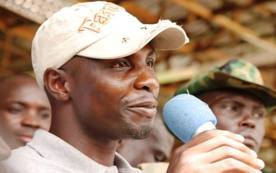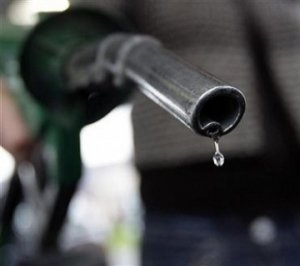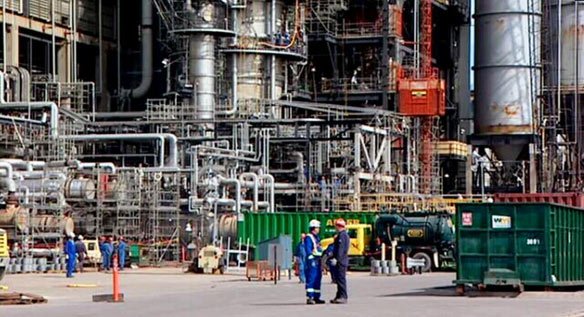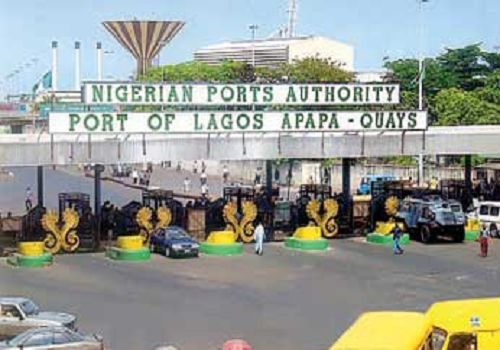 05 July 2013, Sweetcrude, Lagos – High Chief Government Ekpemupolo popularly known and referred to as Tompolo means different things to different people. To some he is a militant leader who should be feared and despised. To others he is a no-nonsense freedom fighter who is ready to lay down his life for a cause he strongly believes in and to others he is a philanthropist of no mean measure.
05 July 2013, Sweetcrude, Lagos – High Chief Government Ekpemupolo popularly known and referred to as Tompolo means different things to different people. To some he is a militant leader who should be feared and despised. To others he is a no-nonsense freedom fighter who is ready to lay down his life for a cause he strongly believes in and to others he is a philanthropist of no mean measure.
Following the rise in pipeline vandalism and illegal oil activities which has drastically affected Nigeria’s crude oil production prompting the Anglo-Dutch Shell to shut in some 150,000 barrels of daily production, it became imperative to go in search of the enigmatic gentleman whose name commands fear in several parts of the country.
In this exclusive interview with SweetcrudeReports in Warri the ex-agitator as he prefers to be addressed opened up like never before on a number of issues cutting across various spheres of our nationhood. He spoke with Yemie Adeoye, Assistant Editor SweetcrudeReports on the controversial PIB, current state of our oil production; illegal oil activities and what should be done to checkmate it, the Tompolo Foundation, Amnesty, and the NNPC floating mega stations, amongst others.
Excerpts:
How is life after the struggle? What activities have you been involved in since accepting the federal government’s amnesty program?
First, let me thank you sincerely for the opportunity to reach out once again. Tompolo as I’m fondly called means different things to different people in this Country and has also been greatly misunderstood.
Basically, the reason for the initial arms struggle on behalf of the people of the Niger-Delta is due to the terrible conditions of living in the Niger-Delta despite the fact that the area produces the wealth of the Nation.
In 1958 there was a commission which was mandated to look into the living condition of the minorities in the Country and it came out with a report that there is need for a major development of the terrain due to the difficulty of the region they have found themselves which is the Niger-Delta, and after the discovery of Oloibiri and subsequent spread throughout the Niger-Delta the area was highly exploited by Multinationals and until I and other progressives went into the struggle to agitate for a better living for the people it could be ascertained that the livelihood of the people had been totally destroyed and this has been reportedly referred to as a criminal neglect and this is why we went into the struggle.
So after the struggle which has since ended what new things have been happening?
After the agitation I have remained in the struggle for a better living for the people of the Niger-Delta largely by advocating and proposing good policies for the government.
An example is the Oil facilities surveillance which we proposed, because we made it clear to the President that the only way to curb illegal oil activities which has bedeviled the country is by involving the locals in the monitoring of these facilities.
The Host communities needed to provide the surveillance of these facilities and it was tried and the result was impressive. So I’m still very much in the agitation of a better living for our people even with very little time for my immediate family.
So are you a contented man now? Are you happy with the situation of the region since the arms struggle ended?
The struggle has not ended, just that the modus operandi has changed. Now we are into peaceful advocacy for a better standard of living for the people. The promise the government has made has still not been fulfilled.
The declaration of the Presidential amnesty was just a vehicle to carry the agitation to its destination. Amnesty on its own is not the end. It’s just a means to an end. It was just a platform that was created for a roundtable discussion for the issues to be resolved amicably. Issues of participation in governance, having our people in the various committees that determines what comes to our region so they can be better guided, giving the people of the Niger-Delta a stake in the oil sector as produced by their communities, and this is the reason why I said earlier that the amnesty is just a means to an end, because the people being trained by the Amnesty program need to be properly engaged afterwards by the Oil companies, as most of them received training around oil and gas operations and activities and they must be employed as this is the only way to lasting peace in the region and Nigeria by extension.
You talked about a surveillance program for Oil facilities in the Niger-Delta, there has been a very high increase in pipeline vandalism and oil theft has been on an alarming high, and even the Hon. Minister of petroleum resources also decried this act recently, as a stakeholder in the nation’s oil and gas sector I want to have your views on this development, what is the reason behind it and what do you propose as a solution?
It is very simple! What could be done to nip the act of illegal oil activities in the bud.
Do you agree with the federal government that the situation is getting worse?
Yes I do! I agree with them, for the simple fact that it wasn’t as bad as this for the late part of 2010 to 2012 because then the surveillance activities on Oil facilities was intense as it was being carried out by those who knows and understands the terrain and this was as a result of the Presidential contract to safeguard Oil facilities in the Niger-Delta, and this contract was awarded in three states, Bayelsa, Delta and Rivers states.
I can speak effectively for Delta state, and I do state clearly that the surveillance program was much more than a success in that state, and the figures and facts are there to show. Sadly enough the Government for reasons strange and unknown has refused to renew that seemingly important contract.
When this contract was awarded in 2011 it was just awarded as a one year pilot project and with the success that was recorded in states like Delta we expected the Government to do all it could to ensure that it continued. Some of the ex-agitators involved in the amnesty program, but who weren’t lucky enough to get placement for training were all employed to carry out this job, and during the period when this contract was on they were the ones who were engaged to do the job and they were being adequately paid. But now that the contract has not been renewed, you cannot guarantee that they wouldn’t go back to illegal oil activities as a means of survival, that is the simplest and singular reason why there is an increase in illegal oil activities and this might even continue to grow as there is currently no form of surveillance on these facilities especially the ones crisscrossing the difficult terrains and swampy regions.
To answer your question, the only thing that the government can do right now if they are truly bothered about the rise in illegal oil activities is to renew these surveillance jobs and even expand it to areas that were not initially captured. If this is done I can assure you there would be serious drop in illegal oil activities and revenue base would rise like magic, it’s however up to Government.
Do you suggest same therapy for an area like Lagos where the most strategic pipeline in the Country, system 2b has being consistently vandalized with lives lost in the process?
Yes! The same therapy should apply if the government really wants to nip this in the bud. If you reside in an area and a stranger is coming into that community you would know. It’s simply community policing! So when you hand over the Lagos axis and other areas to those who resides there you would see an immediate change and nothing would happen to those lines anymore. Hence, it should be noted that nothing would work better than community policing if we must curb illegal oil activities and pipeline vandalism in Nigeria.
So the Nigerian Police or Navy can’t tackle this, and we need to form another set of police for this?
Yes! They can’t tackle it! If they can it would have been tackled rather than increasing. And this is simply because they do not understand those terrains better than the residents, and the community people would not even cooperate with them because they are afraid to even give them information, this is also because there is a way that the police or other uniformed agencies would treat information and it is not always satisfactory to the people, so they won’t even give you information. So the best way is simply community policing.
You said earlier that when this contract was awarded the illegal oil activities went down. How certain are we about this? What have we to show that this was really the situation? Do we have facts and figures to support this?
Well, all I can tell you is that those facts are with government and its relevant agencies. The GMD of NNPC has confirmed at different forum that production actually went up and illegal activities reduced around that period. It was at the end of the one year contract that things broke down to this level to the extent that the federal government summoned a meeting and was discussing the declining state of petroleum income.
Sadly enough what government is currently losing is far higher than the contract sum for the surveillance contract that is of course a cause for worry. A case of losing more than you would ever invest in protecting those loses. The contract on the other hand also gainfully provides employment for the thousands of restless idle hands in the region.
How does this program work? Please give us an idea of how it was operated either in Delta, Bayesla or Rivers states?.
The one year contract that ended in 2012 engaged 5000 persons in Delta state alone. I’m talking 5000 youths cutting across all ethnic backgrounds. They were the ones doing the job and they didn’t allow any external influence or force to come into the region to wreck any such havoc.
In Bayelsa 3000 youths were engaged and in Rivers state 4000 were engaged. As I’m talking to you that contract took care by way of gainful employment a minimum of 12,000 youths across the Niger Delta, and all these people are currently jobless. So do you still wonder why there is an increase in illegal activities? And if this be renewed I urge the federal government to expand it beyond the initial 3 states which participated in the pilot program.
The government should not also capitalize on whatever weaknesses there are of the program, rather it should look at ways of better modifying it to meet whatever standards the government desires.
So the solution can never lie in terminating the contract rather they should find out why things are not working as desired in some states.
So what is one cardinal goal that the arms struggle has achieved?
One major achievement of the struggle is that it has enlightened the ruling class that truly this region is in dire need of development in terms of jobs, economic and social empowerment etc. however the aspect that is left is for the government to begin to implement those policies that has been agreed upon like the Petroleum Industry Bill currently before the National Assembly these are the ways to further calm nerves in the Niger-Delta.
Now that you have mention the PIB I’ll like us to dwell on it for a few minutes. The bill is said to be the single most important document currently before the National Assembly. It is believed however that some of the reasons for your initial agitation are addressed in the PIB. Aside from this, Northern Senators have also being reported to have kicked against some sections of the bill which calls for more funding for host communities in the Niger-Delta. What is your reaction as a stakeholder whose community would be affected by the outcome of this bill?
My view on that is very simple; the problem with the Northern Senators is that they don’t understand that Oil could be discovered in any part of the Country. Recently we heard of Oil prospects in Kwara, Kogi and even in Sokoto, so basically this law is for the entire Country and not just the Niger-Delta as it could be the turn of any part of this Country to produce Oil tomorrow hence such an important document shouldn’t be trivialized by ethnic sentiments and should be given a speedy attention, it’s going to be a law for the entire Country when passed. So if you’re against host communities benefitting from the oil proceeds emanating from their region today, by the time a place like Sokoto discovers Oil you will not be able to convince the other part of the Country to support your cause. So they should support the bill now as that would enable us avoid so many issues that may arise again when oil is discovered elsewhere, because when that happens it would only require a mere review to include the new areas that are going to produce oil.
One of the proposals of the bill which is in favour of the host communities states that an additional 10 percent of oil proceeds should go to the host communities, but after the 13 percent derivation to oil producing areas have failed to yield the desired result do you think this is a step in right direction or a means of further empowering corrupt Governors and Politicians?
That part of the PIB which currently states that 10 per cent of oil proceeds should be given to Communities is a process to correct the abnormalities in the dispensation of the 13 per cent. If we say we have not benefited anything from the 13 per cent derivation, then we must find a means to also correct the reason why the benefit doesn’t trickle down to the people. The beauty of what is contained in the PIB as against the 13 per cent derivation is that this time around the proceeds would go to the host communities directly.
It should however be noted that the so called 10 per cent is not even enough, because when you talk of development it would be discovered that it requires almost 10 times the amount you need to construct a road in the hinterland to construct that same road in the coastal areas. Hence like I said earlier, it’s a good thing that the proposal should be geared towards the communities for the first time rather than state governments.
Thus, I want to urge the National Assembly to look beyond ethnicity or any other issues and pass the PIB without further delay as it would become a law for the entire Country.
Tell us a little about the Tompolo Foundation. We are aware that amongst all other repentant ex-agitators you are the only one running such a program what is the reason behind this?
Well as you may be aware I am no politician and I don’t intend to go into politics. Having said that I would simply respond to your question by saying that the decision to establish the Foundation was borne out of my desire to continue to impact on the lives and welfare of the people of the Niger-Delta. It should however be noted that giving back to the people has been the whole essence of Tompolo as that is the only way I derive happiness and that was why I was forced to take up arms against the system that have left our people in abject poverty. Sometimes around last year we however decided to make it formal and broaden the reach as we came to realize that the problems of the Niger-Delta goes far beyond one or two communities.
Also of note is the fact that we don’t have as much as is required to cater for the basic needs of those rural people we hope to help, so going formal will enable various donors both locally and internationally to join our cause and see the little they can do to assist through our foundation.
In just six months of our existence we have done a number of things to help alleviate the stress of the people.
Can you share some of these with us?
Yes! The Foundation is basically focused on Health and Education, and we concentrate our efforts on the coastal areas because these are very difficult terrains that the government finds very difficult to access, hence any government project you see are largely abandoned projects so this was what informed our decision. We have in that short period distributed learning and teaching materials, as well as materials for co-curricular activities worth over N50 million to both primary and secondary schools in the Coastal areas, and our recent evaluation and assessment indicated that those materials where really helpful to both the teachers and students in those areas. Also in April the Foundation took over the renovation of a Hospital that has been abandoned for about three years by the Delta State Government through DESOPADEC. It was fully renovated and brought to modern medical standards and the Foundation engaged the services of qualified experienced doctors and nurses and equipped the place in order for them to carry out their duties effectively. As we speak we have been able to carry out major minor and intermediate surgical operations.
How equipped is well equipped according to you?
It is a cottage Hospital, and we have ensured that all basic and necessary equipment to deal with common cases in the riverine areas are provided as well as modern surgical equipment In a single month our overheads run into about ten million naira and this includes staff salaries and daily operational costs. The treatment and drugs are all free of charge and nobody pays a dime in this Hospital.
The coastal areas, you must understand is an extremely difficult terrain hence it is not very easy for any government Agency to want to site a project there because of the costs and other issues.
After the arms struggle there has being Amnesty and rehabilitation, what is the current state of the ex-agitators and what effect have they had on the economy?
Well the Amnesty program is simply a means to an end like I’ve always said, and I would want to commend the Government for sustaining that means.
The means has rehabilitated the ex-agitators and is trying to reintegrate them back into the normal society and I think that is very good. However, while the trainings and rehabilitation is highly appreciated it’s highly imperative that the government device a means for such people to be employed, because it would be a great disservice to train them and fail to device a means of employment for such people.
So let me use this opportunity to appeal to Mr. President and all his advisers on Niger-Delta Affairs to as a matter of urgency device a means to absorb these people that are being trained by the Amnesty program. I am fully aware that there are governmental Agencies that can fully absorb these trainees e. g the NNPC and other Agencies in the Oil and Gas sector because majority of these boys are being trained in oil sector operations and so on.
I am making this appeal because even after the training, if they cannot eke out a living it would motivate them to go back to their old ways which would be detrimental to all parties involved and the country in general.
So to answer your question they have not been able to contribute their expected quota to the economy of this Country.
What is the current state of the NNPC mega stations deployed to the coastal areas of the Niger delta some 8 years ago? We understand they have been moribund?
The project is a well thought out one on the part of the federal government under the leadership of President Obasanjo. Some of us in the region mooted the idea to him that the region could hardly access petroleum products at government prices.
He bought the idea and ordered for the construction of 12 of such floating mega stations. They have all been deployed since 2008 but has never being functional, and after we cried out to them again they responded by setting up a committee to look into it, and today we are on the verge of receiving products in the station in my area for the first time.
But since 2008, if it was a well conceptualized idea why then did it take forever to operate?
Bureaucracy! That is the only thing I can imagine went wrong. Well I’m aware that some were operational in some Niger-Delta states but the two in Delta are on the verge of receiving products for the first time.
Presently a litre of petrol in Gbaramatu where I’m from sells for about N300 and other riverine areas, so by the time these floating stations comes fully operational the people of these areas would also be opportune to buy petrol at government regulated prices.
So there is need for government to construct and deploy more mega stations to all coastal states. And I think each coastal state shouldn’t have less than 10 each. It would be too effective and would relieve the people of so much stress which they’re currently facing.



